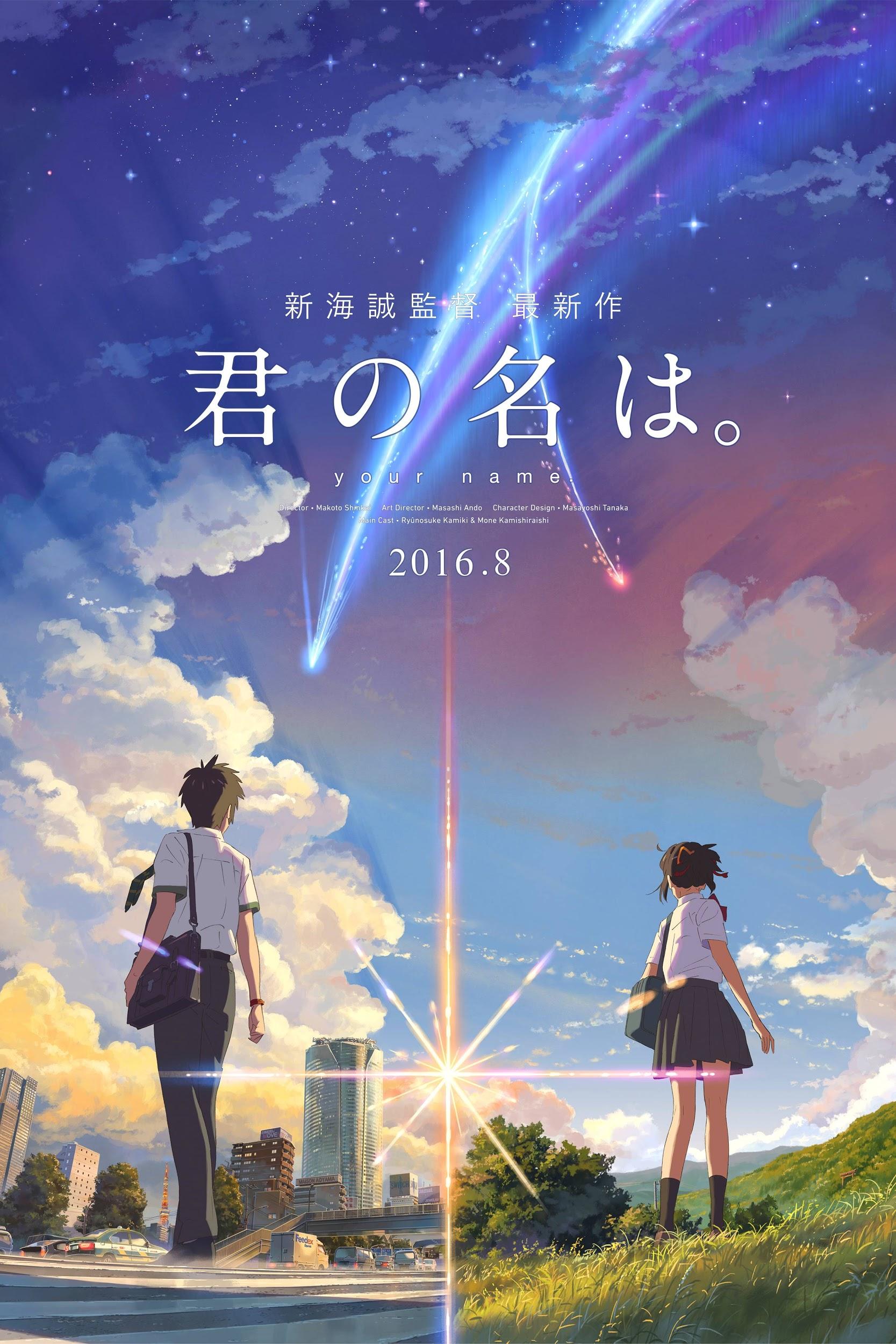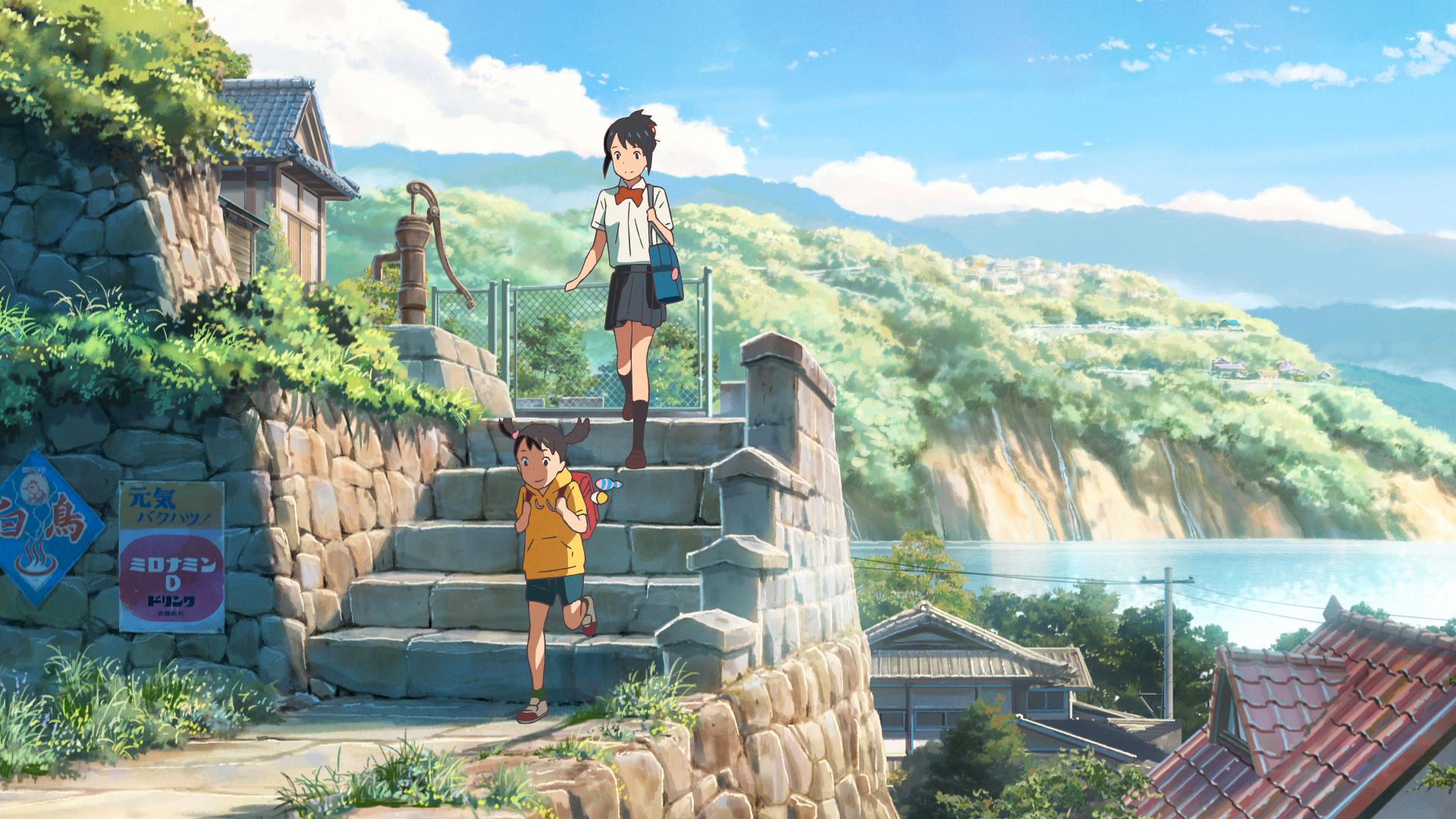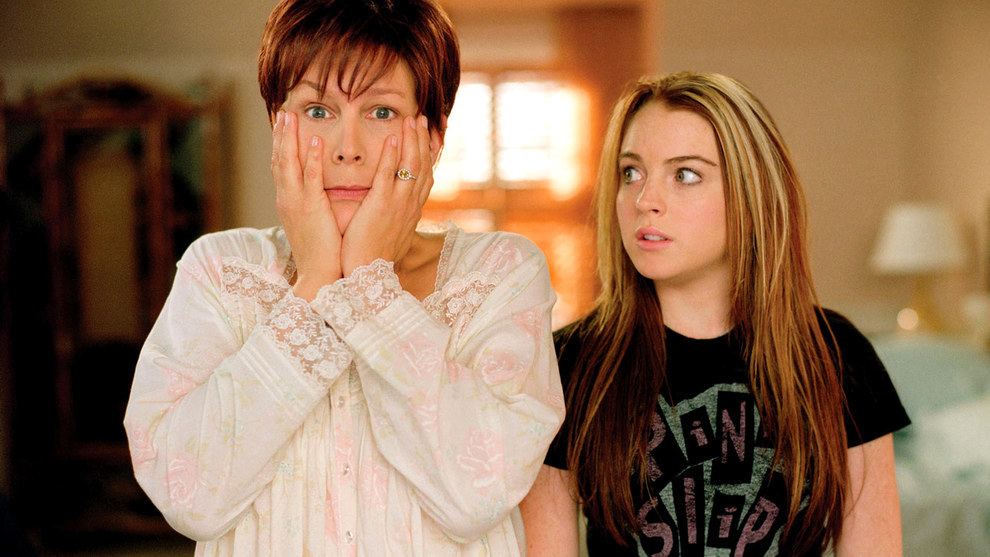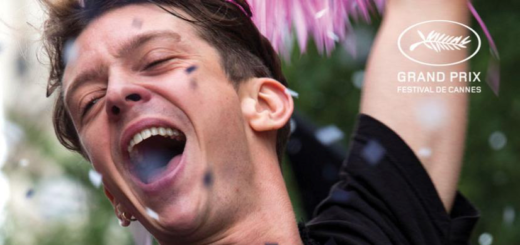YOUR NAME Review

Director: Makoto Shinkai
Genre: Anime
Year: 2016
It goes without saying that the culmination of Hayao Miyazaki’s artistic career left somewhat of a gaping hole in the anime community. Despite Studio Ghibli’s best efforts to keep the genre alive, the high-flying success of Miyazaki’s heyday (postmarked with the release of the Oscar-winning SPIRITED AWAY) feels like a distant memory. Therefore, I was all the more excited when I discovered that a critically acclaimed Japanese export had blossomed into the second most profitable anime feature in cinematic history. Makoto Shinkai released YOUR NAME in August of 2016, but it has only officially landed in the United States now, so I grabbed my tissues and ran headfirst into the movie theatre.
We begin our journey with Mitsuha, a teenage country girl who is caught dead center in adolescent tribulations 101. As her father is running for public office, her grandmother lectures her about ancient family traditions. But Mitsuha isn’t having any of it. All she wants to do is run away and start a new life in Tokyo. And in the wake of a proverbial wishing star, she gets exactly what she wants, sort of. The next morning, Mitsuha wakes up in the body of Taki, a busy teenage boy growing up in Japan’s metropolitan hub. What the two soon discover is that they swap bodies every other day, but unlike your run-of-the-mill body swapping film, there is a thematic depth and narrative complexity to the rules of this world that make YOUR NAME an experience for the ages. Saying anymore would be saying too much.

“Ugh, I just wanna live in Tokyo, this village is too gorgeous”
Exceptionally profound, deeply moving, and effortlessly told. If Pedro Almodovar would be a Japanese magical realist, he would have made YOUR NAME. Subtle incorporations of subtextual discourse on gender and sexuality form a tapestry of complex emotions, all rendered through Shinkai’s painterly attention to detail. By playing with time and memory in absolutely ingenious ways, YOUR NAME immediately overcomes the hurdle of its well-trodden premise, and kneads its narrative with an almost obsessive sense of completionism. For a fantasy, everything makes sense here. Nothing is left open, and Shinkai’s comfort with high-stakes tragedy lends the film an assuredness that is all too sparse in children’s content. We haven’t had anime of such epic proportions in years. It plants and pays off its world rules in absolutely ingenious ways, and wrings your gut like a wet towel in its third act.
Shinkai has crafted the most fully realized fantastical screenplay in decades, and perhaps the most balanced animated script of all time. His tactical interplay of folklore and pop culture reminds me of 2015’s WHEN MARNIE WAS THERE, but thanks to the refinement of each narrative beat, I’d go as far as to say that it’s far more elegant in structure. This is economical filmmaking of the highest order. Perfectly balancing auditory exposition with visual storytelling, YOUR NAME understands how to take the best advantage of its medium. Shinkai walks a shockingly complex tightrope, a balancing act that involves evenly distributing development in themes and plot over the course of two parallel narratives. As Mitsuha and Taki’s stories develop in tandem with one another, viewers have to remain aware of how the two are symbolically linked. This becomes all the more complex in a second act that completely rearranges expectations of the narrative at large. Focal points shift and motivations are adjusted. In doing so, Shinkai constantly keeps his audience on their toes: a noble accomplishment for a cinematic medium that more often than not gets too carried away in its aesthetic predilections.

Another example of whitewashing, smdh
A disclaimer should be heeded, however. If you are not fluent in Japanese, I highly suggest watching the dubbed version of YOUR NAME in order to really take in the milky, hand-drawn visuals. Subtitles will only detract from all the aesthetic allegories at play. Having said that, the English dub has also replaced the original Japanese songs with some of the cringiest English tunes I’ve ever heard in an anime. This is bottom-of-the-barrel anime-expo-fan-music. So if you can watch it twice, do that; it’s sure to pay off in spades since the film is peppered with visual and auditory clues of what is to happen. In that sense, YOUR NAME bears some similarities to the narrative labyrinth that is ETERNAL SUNSHINE OF THE SPOTLESS MIND, and is sure to leave you crying in quite the same way.
I can’t stress just how tear-inducing Makoto Shinkai’s film becomes. It’s an unbelievable accomplishment in just how elegantly it champions its fantastical narrative. Perhaps the success lies in the fact that it mostly plays it straight. It never dumbs itself down with petty humor, but really delves into the minutiae of its characters’ psyches. The core plot is consistently secondary to the tragedies at hand, and it’s this somber, melancholy discourse on memory, identity, and kinship that makes the film so invigorating. Earlier, I compared YOUR NAME to the films of Pedro Almodovar, and I think this is at its most apparent when it rests its emotions on the tangled web that has been woven by its creator. Shinkai isn’t kind to his protagonists, but neither is life, and that’s why his film is so heartrending. It is literally showering in the workings of a highly dedicated artist. This is without a doubt the most emotionally potent film of 2016, one I regret didn’t make the cut for our Top 50 list last year. Clever, rousing, and beautiful, YOUR NAME is not to be missed.
Verdict: Recommend



